
13 minute read
COUNCIL IN FOCUS
Looking ahead to textile solutions
THE CITY OF DAREBIN COUNCIL IS SETTING ITS SIGHTS ON THE FUTURE OF TEXTILE RECYCLING WITHIN ITS COMMUNITY.
Australians send about $500 million of clothing to landfill each year, more than 95 per cent of which can be recycled or reused.
The City of Darebin Council, in Melbourne’s northern suburbs, is turning its attention to textile and material waste as part of its commitment to establishing a circular economy.
The council received funding in 2021 from Sustainability Victoria, as part of the Recycling Victoria Councils Fund, to conduct a feasibility study into a commercial textile recycling facility. Ai Ikemi, the council’s Sustainability Programs Officer, says textile waste has been identified as a growth area for the region.
“We engaged with an external consultant back in 2019. When they were conducting a large waste strategic review for us, [we found] that in addition to food waste, textile waste should be a priority for us,” Ai says.
“For the first time we have put on a climate change lens when reviewing our waste strategy. We found that focusing on textile waste was really good for emission reduction and not just waste reduction.”
The Strategic Waste Options Summary Report, completed by an external consultant, highlighted key areas for the City of Darebin to action as far as textile waste was concerned, including landfill diversion and carbon emissions.
“When you look at the amount of textile waste going to landfill it is actually a small amount. It’s about three per cent of what Darebin sends to landfill,” Ai says. “But when we look at the intensiveness of emissions from that three per cent, we identified that it was a huge opportunity for us to reduce our carbon impacts.
“What we are ultimately trying to achieve is a local solution to closing the loop for textile waste. When the Sustainability Victoria grants were made available, we wanted to take that next step and actually look at recycling locally.”
Nina Bailey, Senior Sustainability Programs Officer, says that the Darebin feasibility study will provide more clarity around the applicability of textile infrastructure projects for the local area.
“We have really wanted to be at the innovative end when working with the circular economy in Darebin, which is why this textile project is very exciting,” Nina says. “At the end of this process we want to have a look at the report and recommendations and sit internally and do more stakeholder engagement.
“The next phase will likely involve council seeking more funds. The end goal is to develop something infrastructure-wise that can contribute to textile treatment,” she says. “It is easy enough to talk about waste avoidance and landfill avoidance, but we want to go that step further and offer everyone a solution.”
The City of Darebin is already encouraging local recycling through organically grown programs such as the Darebin Hard Rubbish Heroes
The City of Darebin’s feasibility study is being financially supported by Sustainability Victoria.
program. The program has its own Facebook group to engage residents and support the reuse, repair, recycling and rehoming of materials.
Ai explains that similar programs are also helping to encourage engagement around textile material solutions.
“We firstly look at the sustainable consumption of textiles, so we worked with our local op-shop collectors to promote second-hand shopping,” she says. “We’re encouraging residents to visit local op-shops and bring in good quality items rather than sending that material to landfill.”
Ai says that creating a self-sufficient economy for textiles will be key to developing an effective solution for the waste stream. She says the region’s experience in textile manufacturing will also bode well for development.
“There is a history of textile production throughout the area,” Ai says. “It is a really nice thing to be able to bring that back by supporting local textile manufacturing. Especially during COVID-19, where support is needed for local businesses.”
The City of Darebin will also focus on implementing programs to educate residents about the appropriate treatment of textile waste.
“In our team we do a lot of waste and recycling education,” Nina says.
“Anything around the circular economy and textile work is going to be new, so we will be well placed to educate residents and answer questions.”
She says the council will also extend its services to existing operations.
“It is going to be important to work with those groups who are already receiving and processing textiles, even if they aren’t recycling,” she says. “We will be working with charities, local businesses, recyclers and universities for that technical innovation.”
At the completion of the feasibility study in 2022, providing a solution for textile recycling will be a key priority for the City of Darebin.
Sustainability Victoria is also looking to optimise textile recycling networks throughout the state. CEO Claire Ferres Miles says the organisation is “proud” to fund the Darebin feasibility study.
“This is an enormous area of opportunity to drive a shift towards waste reduction and using resources to their full potential,” Claire says.
“This feasibility study offers the opportunity to investigate options that will empower councils like the City of Darebin to lead impactful change.”
For more information, visit: www.darebin.vic.gov.au

SUSTAINABLE SOLUTIONS FOR AN EVOLVING INDUSTRY
OPAL COVE RESORT Coff s Harbour 3-5 May 2022
Waste 2022 – The industry’s leading Waste Management Conference
The Waste 2022 Conference is scheduled to take place on 3-5 May 2022 in Co s Harbour and will be a hybrid event featuring both face-to-face and live broadcast of presentations. The program will provide keynote addresses, panel discussions, workshops and 3 concurrent streams allowing delegates to tailor the program to their own learning needs. There will also be the opportunity to network with industry experts during 3 dedicated social events. This premier industry event will operate in a COVID safe manner and will comply with regulations.
The 3-day event is coupled with an extensive indoor exhibition and interactive outdoor product displays.
- Conference program, registration and accommodation bookings will be available from mid-March - Sponsorship and exhibition opportunities are now available
Exciting Announcement New to Waste 2022!

A dedicated Equipment and Technology Expo will complement the existing conference and exhibition whereby you can participate in presentations and learn all about the equipment on display. If you have missed the opportunity to be face to face with many of the key suppliers due to COVID-19, now is your chance! More information coming soon so keep an eye on the conference website.
For further information visit: www.co swasteconference.com.au | Email: wasteconference@impactenviro.com.au | Phone: 0265838118 | Mobile: 0474629908
KOMPTECH CEA’S MAXX-E



The Maxx drum screen from Komptech CEA was built for use in mid- to large-sized composting operations. Its rugged construction and high-performance components make it suitable for almost any screen application and it is a professional solution for contracting companies across Australia.
In addition to housing Komptech CEA’s renowned drum screen machinery components, the Maxx also consists of an electric-powered alternative system. Electrically driven variants are available as alternatives: On the “E“ variants, electric motors are used in place of hydraulic drives.
Power comes directly from the mains or, when required, is produced by an integrated diesel generator. The electric mode yields a reduction in energy consumption and results in savings in replacement and/or consumable parts and servicing costs.



Komptech CEA’s MAXX-E drum screen.
Contact - CEA

P Deon Cope E d.cope@jcbcea.com.au W www.jcbcea.com.au Celebrating Celebrating waste and recycling waste and recycling waste and recycling INDUSTRY LEADERS INDUSTRY LEADERS

tickets now on sale tickets now on sale
SHOWTIME EVENTS MELBOURNE SHOWTIME EVENTS MELBOURNE www.wasteawards.com.au

Sponsors www.wasteawards.com.au
Sponsors
TOMORROW’S SOLUTIONS. TODAY
TOMORROW’S SOLUTIONS. TODAY
ELDAN RECYCLING, SUPER CHOPPER SC2118/SC2109 - FREQUENCY DRIVE
Eldan Super Choppers are heavy-duty pre-choppers designed as the fi rst step in any recycling process.
The Super Choppers are versatile and can be used for pre-chopping most materials including tyres (without prior debeading), aluminium scrap, cables, electronic and electrical waste, refrigerators, municipal solid waste, wind turbine wings, plastics and more.
They are powered directly by either planetary gear and frequency converter, or a hydraulic motor and power unit, both ensuring automatic reverse for overload protection and minimising knife damages.
The large Super Chopper model has adjustable knife clearance, which optimises the cutting function. The knives can be reground multiple times on a “fl at-bed” grinder to ensure long life and low operation costs. The unique rotor, with either 18 or 9 fl ying knives, is manufactured and designed for minimum wear.
Rough screening bars ensure reduced output size with the option of reducing output down to less than 100mm.
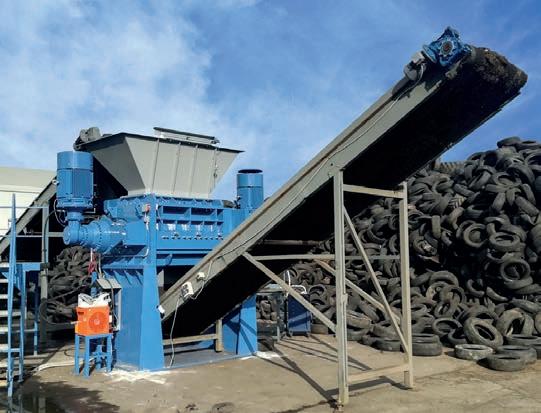
Eldan Recycling’s Super Chopper.
Contact - Eldan Recycling
P +45 21 49 19 67 US P +1 716 731 4900 ext. 101 E cn@eldan-recycling.com W eldan-recycling.com
Waste not, recycle more
SUZANNE TOUMBOUROU, CEO OF THE AUSTRALIAN COUNCIL OF RECYCLING, REVEALS THE ORGANISATION’S 2022 STRATEGY AND WHY SHE WANTS TO LEAVE THE WORD ‘WASTE’ BEHIND.
The word ‘waste’ has not served the resource recovery or recycling industry well. It implies that resources once used, hold no further value.
In reality, our industry and its manufacturing partners, have rapidly become more resourceful and innovative in the ways products and materials can be recovered and reused in the circular economy. And there is broad recognition of the potential for jobs, productivity and emissions reduction that this sector can deliver.
Last year, the Australian Council of Recycling (ACOR) began the process of renewing its strategic direction. Our vision is an Australian circular economy where resource recovery, remanufacturing and recycling are central to generating economic and social value while improving the health of our environment. Waste does not feature in this vision.
ACOR’s mission as the pre-eminent peak industry forum is to lead the transition to a circular economy through the resource recovery, remanufacturing and recycling supply chain.
Governments, industry and the community need to stop thinking ‘waste’ and start seeing ‘resource potential’.
Supporting this goal are our four policy priorities: Strong end markets and an integrated supply chain to support a thriving competitive recycling market and embed recycled content in procurement; a supportive regulatory environment, with nationally harmonised alignment between environmental policies and circular economy principles; product stewardship to ensure distributors and producers are responsible for the end-of-life of the products brought into the Australian market; and consumers who know how to ‘recycle right’ and consumer confidence in how to recycle right.
Waste is not mentioned in ACOR’s mission statement or policy priorities. It must not define our industry.
Most governments across Australia have a steady goal of ‘diverting waste from landfill’.
As genuine as this goal is, we need to begin framing it as ‘recovering valuable resources’, along with maximising jobs and growth. Strong end markets for recycled products are critical to the success of our industry, and rebranding the recycled materials from ‘waste’ to ‘resource’ helps to support business and consumer confidence.

Suzanne Toumbourou, CEO of the Australian Council of Recycling.
Australian recyclers are making things such as asphalt additives for roads, outdoor furniture and household items.

Wouldn’t we all prefer to think of our recycled coffee cups as made from recovered resources and not from waste?
The recent ‘Remade in Australia’ campaign launched by the Federal Government late last year was a move in the right direction, acknowledging that all end-of-life products and packaging have potential. At its core, recycling is about remanufacturing and creating great products with better environmental outcomes. The Remade campaign allows us to hope for a future where recovered resources are prioritised above virgin materials.
Businesses and governments now undeniably have an increased duty of care to use recycled materials in their products and infrastructure; whilst taking responsibility for the end-of-life outcomes of all production – from supermarket products to major projects. Recyclers stand ready to work with partners across the entire supply chain, to support resource recovery, recycling and remanufacturing.
With their eye to the future of remanufacturing Australian products, it is also time for the Australian Government to consider reframing the ‘Waste Reduction’ portfolio.
While Minister Trevor Evans has excelled in the portfolio, a Minister for Resource Recovery and Circular Economy would be much more befitting of the role, industry, and circular economy goals. After all, our sector is about innovation and re-creation, rather than waste minimisation.
We make stuff! And the opportunities for remanufacturing are limitless. Right now, in Australia, recyclers are making things such as low carbon bricks and cement, asphalt additives for roads, mulch and compost, pool filtration mediums, outdoor furniture, street safety, and household items.
Other countries are increasingly pursuing this line of thinking and separating the policy areas of resource recovery and the circular economy from the increasingly broad portfolio of ‘Environment’. Last year, Scotland appointed its first Minister for Green Skills, Circular Economy and Biodiversity as a junior ministerial post in the Scottish Government.
A Minister for Resource Recovery and Circular Economy would be a world-first and signal how serious Australia is about recycling our recoverable resources and evolving to a true closed-loop production cycle. A step-change in properly recognising the value of our recoverable resources and ensuring a holistic approach to resource efficiency, productivity and great outcomes for our economy and environment.
THE BENCHMARK COMPANY FOR

Komptech CEA is a leading supplier of machinery and systems for the treatment of solid waste through mechanical and mechanical biological treatments, as well as the treatment of biomass as a renewable energy source. Komptech CEA is proud to provide innovative solutions for handling waste and biomass.
Komptech CEA’s extensive range of products cover all key processing steps in modern waste handling. At Komptech CEA the focus is always on innovative technology and solutions ensuring maximum benefit to the customer. Like to know more? why not speak to one of our team today?
SHREDDERS TROMMEL SCREENS STAR SCREENS WINDROW TURNERS
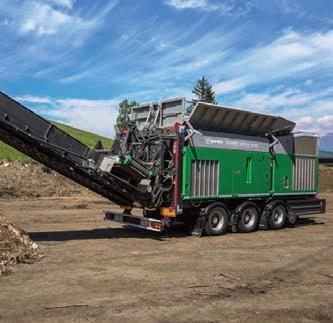
TERMINATOR
Where Function Meets Technology
A slow-running, single-shaft shredder suited to all types of waste.

CRAMBO
Less Fuel, More Power
Ideal for shredding all types of wood and green cuttings.
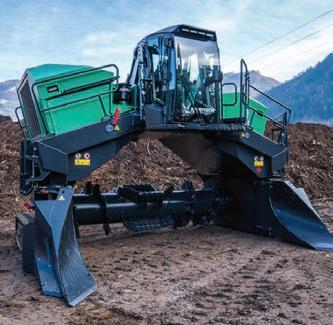
TOPTURN X
The Ideal Combination of Performance and Design
With a sturdy frame, powerful hydraulics and large drum, the Topturn X is ready to handle any work situation.

MULTI STAR
Screening with a Star
Makes waste wood and biomass processing highly efficient.
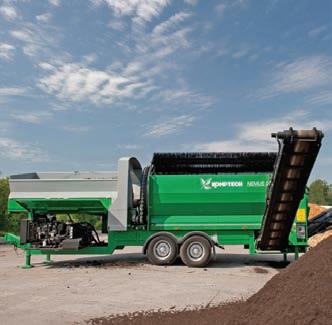
NEMUS
Robust and Reliable
Combining the practice-proven virtues of its predecessors with new solutions for even greater performance.
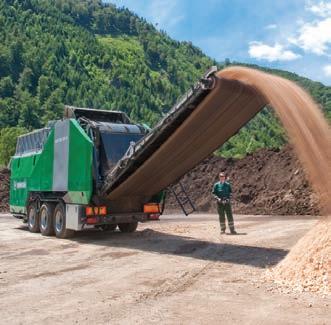
AXTOR
Shredding and Chipping Made Easy
One of the most versatile machines around for processing wood and green cuttings.











